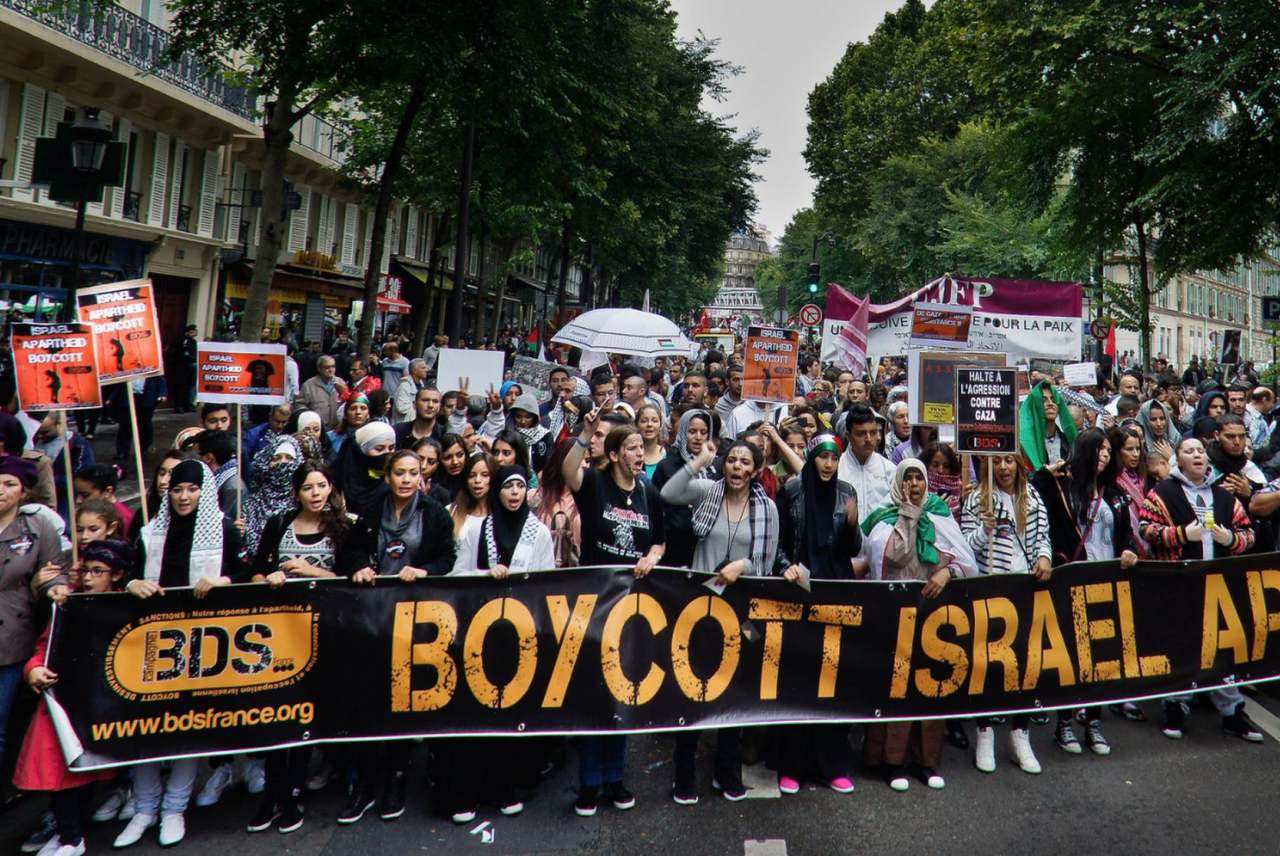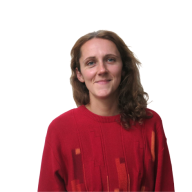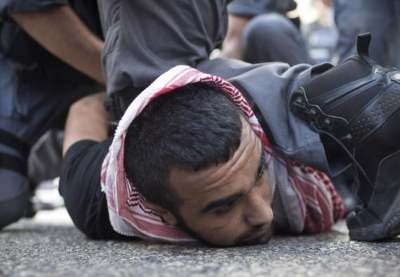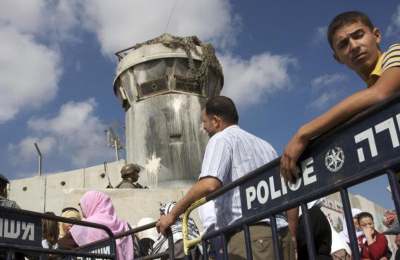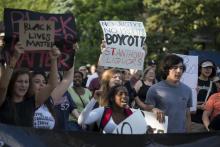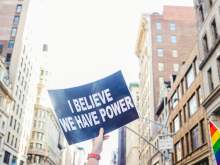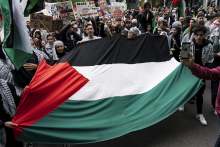Checkpoints
The Israeli military also operates checkpoints in the West Bank. Palestinians are required to queue in order to pass through a checkpoint where they must show ID. There are at least 593 Israeli checkpoints and roadblocks in the West Bank.
These make daily life extremely difficult as in order to travel from home to hospitals, universities, schools or elsewhere Palestinians must first pass through potentially several checkpoints. Checkpoint queues can be several hours long. Sometimes the military closes a checkpoint meaning that no one can pass through. People are regularly turned away from checkpoints even if they have valid ID.
In 2017, the Guardian quoted Murad Wash, 34, who installed floors in Jerusalem. Waiting at the checkpoints “is like being in a zoo,” Murad states. “Today is one of the better days [...] The line is moving quickly. The problem when it is slow is if there is a pick-up time with a car on the other side. If you miss that you have to pay for a taxi.”
Apartheid Wall
There are also Israeli military lookout points on the wall which surrounds and cuts through parts of the West Bank. In 2002 the Israeli state began construction of what it calls a Barrier, which is in parts a high fence and in others a concrete wall twice as high as the Berlin wall. This is referred to as an Apartheid Wall by the BDS movement. It was declared illegal by the UN in 2006 and the International Court of Justice in 2004.
UNOCHA states, “Palestinians in the West Bank are subject to a complex system of control, including physical (the Barrier, checkpoints, roadblocks) and bureaucratic barriers (permits, closure of areas) which restrict their right to freedom of movement.”
Annexation
In 2020 Israel announced plans to annex significant amounts of the Occupied West Bank, including most of the Jordan Valley and over 235 illegal settlements, meaning that it would take possession of the areas and declare sovereignty over them. These plans are currently stalled, seemingly due to differing opinions among Israeli officials on how to proceed and what priorities should be during the coronavirus pandemic.
The UN Human Rights Council stated in June 2020, “the annexation of occupied territory is a serious violation of the Charter of the United Nations and the Geneva Conventions”.
It continued, “twice before, Israel has annexed occupied land – East Jerusalem in 1980 and the Syrian Golan Heights in 1981. On both occasions, the UN Security Council immediately condemned the annexations as unlawful but took no meaningful countermeasures to oppose Israel’s actions.”
De facto annexation, meaning Israel controls the ground in reality, is already happening.
Violations of international human rights laws
According to the Red Cross the Geneva Conventions “form the core of international humanitarian law, which regulates the conduct of armed conflict and seeks to limit its effects. They protect people not taking part in hostilities”.
A 2017 UN General Assembly Resolution stated that Israel was in breach of several provisions of the Geneva Convention. It called for Israel to “comply strictly with its obligations under international law, including international humanitarian law”. It has adopted several similar resolutions historically, for example in 2015 and 2016.
The UN Human Rights Office of the High Commissioner (OHCHR) states “The United Nations has stated on many occasions that the 53-year-old Israeli occupation is the source of profound human rights violations against the Palestinian people. These violations include land confiscation, settler violence, discriminatory planning laws, the confiscation of natural resources, home demolitions, forcible population transfer, excessive use of force and torture, labour exploitation, extensive infringements of privacy rights, restrictions on the media and freedom of expression, the targeting of women activists and journalists, the detention of children, poisoning by exposure to toxic wastes, forced evictions and displacement, economic deprivation and extreme poverty, arbitrary detention, lack of freedom of movement, food insecurity, discriminatory law enforcement and the imposition of a two-tier system of disparate political, legal, social, cultural and economic rights based on ethnicity and nationality.
Palestinian and Israeli human rights defenders, who peacefully bring public attention to these violations, are slandered, criminalised or labeled as terrorists. Above all, the Israeli occupation has meant the denial of the right of Palestinian self-determination.”
In addition to the violations of international human rights laws posed by settlements and annexation, the Israeli government is accused of violating the right of refugees to return to their homeland and is accused of discriminating against Palestinian citizens of Israel.
The right of refugees to return home
Estimates indicate that nearly 50% of Palestinians live outside of Palestine.
According to the Oxford Human Rights Hub, Palestinian refugees and their descendents “constitute one of the largest and longest-standing unresolved refugee crises in the world, with 7.54 million refugees in addition to 720,000 internally displaced persons”.
UN Resolution 194, which was passed in 1948, states that Palestinian refugees should have the right to return to their homes, but this right has been denied.
Oxford Human Rights Hub continues, “Palestinian refugees, who were forcibly displaced as a result of 1948 and 1967 wars, are stripped of their UN-mandated Right of Return [...] Like never before in the history of the UN, Resolution 194’s consistency with international laws and instruments was reaffirmed by the UN more than 135 times.”
Palestinians living in Israel
According to Adalah, a legal centre for Arab minority rights in Israel, Palestinian citizens of Israel face several discriminatory laws.
One example is the Citizenship and Entry into Israel Law.
Amnesty International stated that this law “bars family reunification for Israelis married to Palestinians from the Occupied Territories. It specifically targets Israeli Arabs (Palestinian citizens of Israel) [...] for it is they who marry Palestinians from the West Bank and Gaza Strip.”
